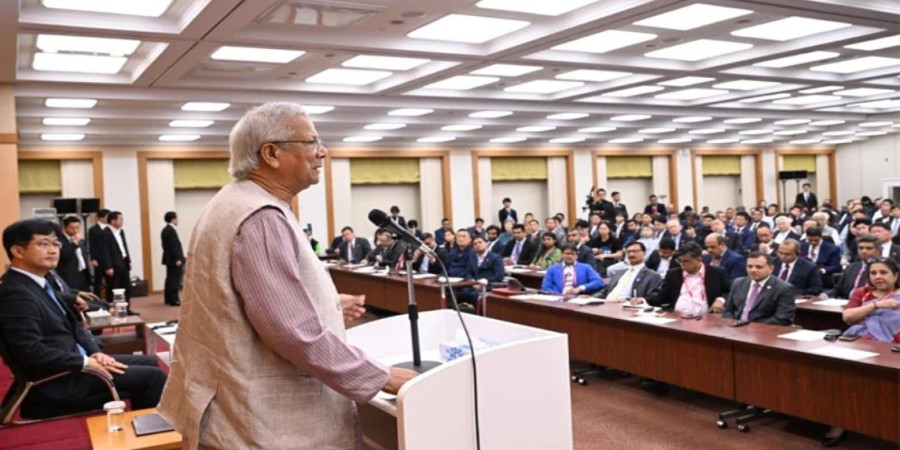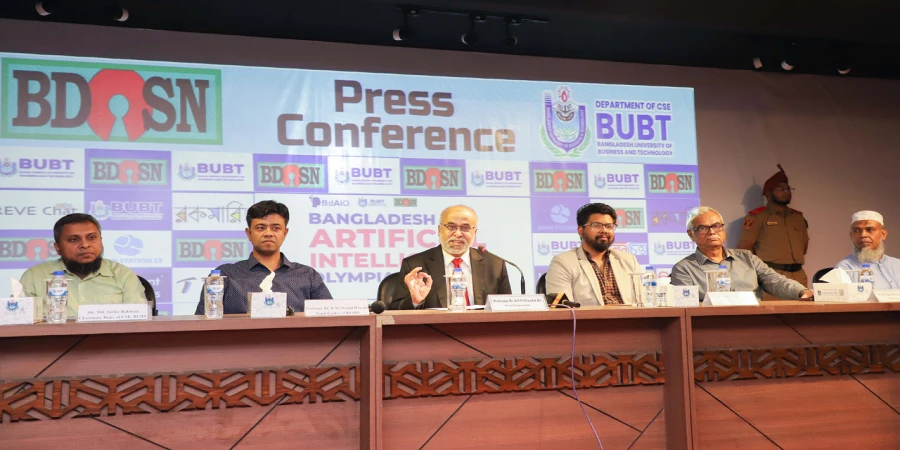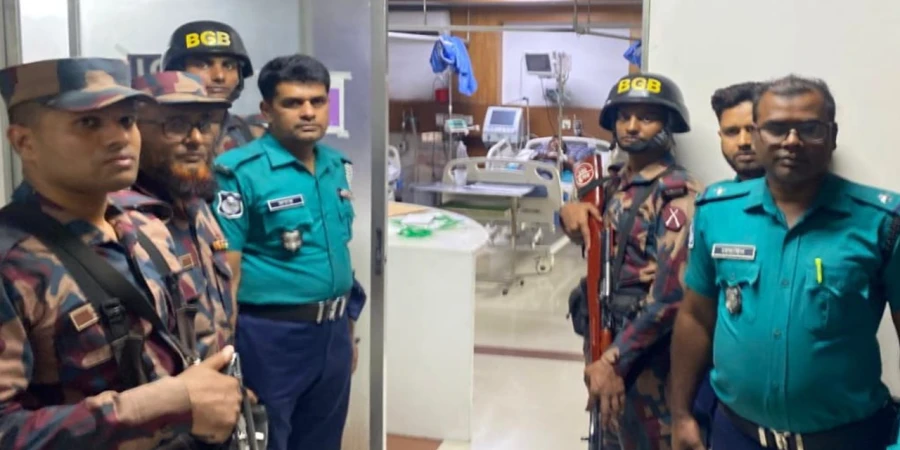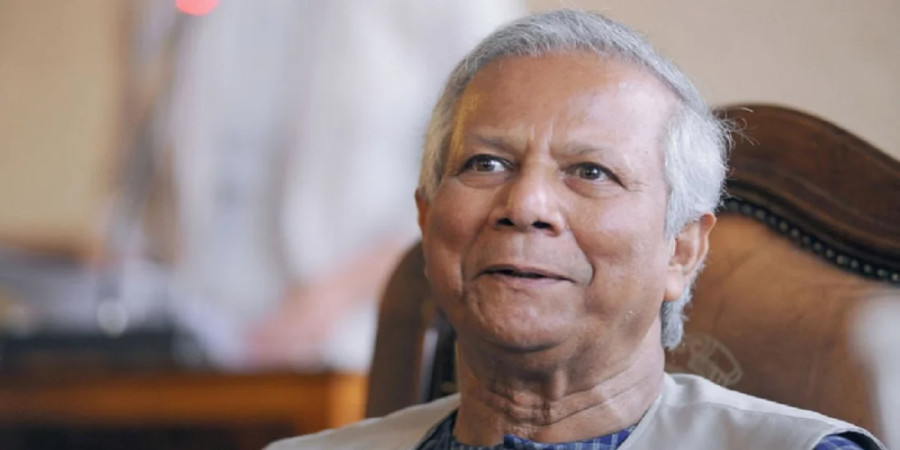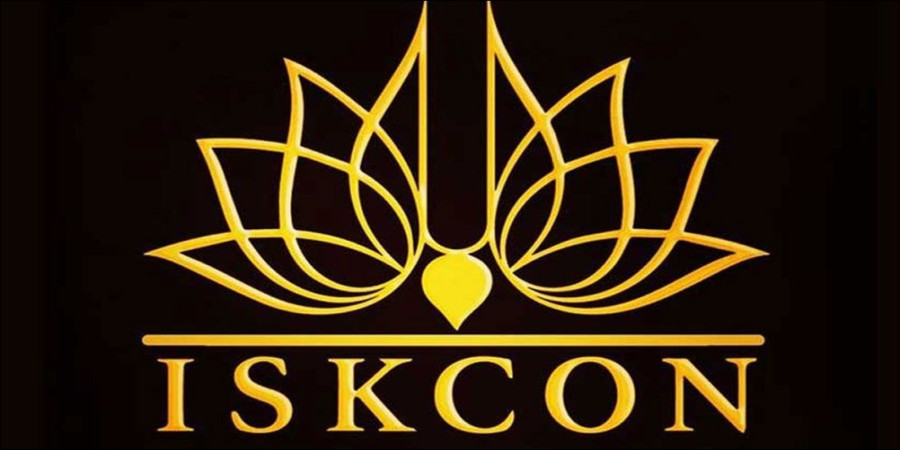
ছবি: Photo: Collected
The recent arrest of Chinnmoy Krishna Das, a former leader of the International Society for Krishna Consciousness (ISCKON) in Bangladesh, has sparked widespread protests and intense discussions about the role of the religious organization in the country. Chinnmoy, who was once a prominent figure within ISCKON and currently serves as the principal of the ISCKON-run Pundarik Dham in Chattogram, is also the spokesperson for the Sanatani Jagaran Jote, a Hindu rights coalition. His arrest on charges of sedition has further deepened existing tensions between communities and raised questions about ISCKON’s activities in the region.
Chinnmoy Krishna Das, originally named Chandan Kumar Dhar, was expelled from ISCKON in July 2024 for alleged misconduct, including activities that contradicted the organization's principles. Despite his expulsion, he continued to lead the Pundarik Dham and became increasingly involved in political activism, particularly as the leader of the Sanatani Jagaran Jote. The coalition, formed in response to what it describes as rising discrimination against religious minorities, has held numerous protests and rallies, demanding enhanced security and legal protections for Bangladesh’s Hindu community.
Chinnmoy’s arrest came in the wake of a controversial rally in Chattogram where he was accused of desecrating the Bangladeshi national flag. This incident, coupled with his political activism, led to charges of sedition and his subsequent detention. Following his arrest, protests erupted in several parts of Bangladesh, with his supporters demanding his immediate release. These protests turned violent in some areas, most notably in Chattogram, where a lawyer affiliated with the opposition BNP-Jamaat coalition, Saiful Islam, was killed during clashes.
The violence has placed ISCKON under intense scrutiny, with many questioning its role in the protests and its relationship with Chinnmoy. ISCKON’s central leadership in Bangladesh has categorically denied any affiliation with Chinnmoy since his expulsion. Charu Chandra Das, the general secretary of ISCKON Bangladesh, stated in a press conference that Chinnmoy no longer represents ISCKON and has no authority to speak on its behalf. He emphasized that ISCKON is committed to peaceful religious practices and does not condone any activities that destabilize the country.
Despite ISCKON’s disassociation, the global leadership of the organization issued a statement condemning Chinnmoy’s arrest. In a post on their official social media platform, they described the accusations of terrorism against ISCKON as “baseless and highly offensive.” This apparent contradiction between the local and international leadership has further complicated the situation, drawing criticism from various quarters.
The Sanatani Jagaran Jote, under Chinnmoy’s leadership, has accused the Bangladeshi government of targeting him to suppress minority voices. According to the coalition, his arrest is part of a broader campaign to delegitimize their movement. Suman Kumar Roy, a central representative of the Jote, argued that the government and its allies are using ISCKON as a scapegoat to deflect attention from their failures in protecting minority rights. He claimed that an “ISCKON-phobia” has been deliberately stoked to marginalize Hindu voices in Bangladesh.
Meanwhile, the legal proceedings surrounding Chinnmoy’s case have drawn the attention of the country’s High Court. On Wednesday, a lawyer petitioned the court to consider banning ISCKON, citing concerns about its alleged involvement in the unrest. The court has asked the government to provide a detailed report on the matter, including measures taken to address the recent violence. Attorney General Mohammad Asaduzzaman assured the court that the government is treating the situation with the utmost seriousness, particularly given the death of a state lawyer during the protests. However, he also argued that any decision to ban ISCKON would require careful consideration of its broader implications.
The controversy has reignited debates about ISCKON’s role in Bangladesh’s socio-political landscape. Founded as a religious organization promoting Gaudiya Vaishnavism, ISCKON operates in many countries and engages in community welfare activities. However, its operations in Bangladesh have been met with skepticism from certain sections of society, with accusations ranging from proselytization to political interference. In response, ISCKON has consistently maintained that it is a non-political organization dedicated to spiritual growth and humanitarian efforts.
This latest episode also underscores the challenges faced by religious minorities in Bangladesh. While ISCKON and the Sanatani Jagaran Jote have both called for greater protections for Hindus, their methods and motives have come under intense scrutiny. Critics argue that these movements risk exacerbating communal tensions rather than addressing the underlying issues.
The Bangladeshi government now faces the delicate task of balancing the protection of minority rights with maintaining law and order. As protests continue, the spotlight remains on Chinnmoy Krishna Das and his complicated relationship with ISCKON. Whether this crisis will lead to meaningful dialogue or further polarization remains to be seen, but it has undoubtedly brought the struggles of Bangladesh’s minority communities into sharper focus.
repoter



